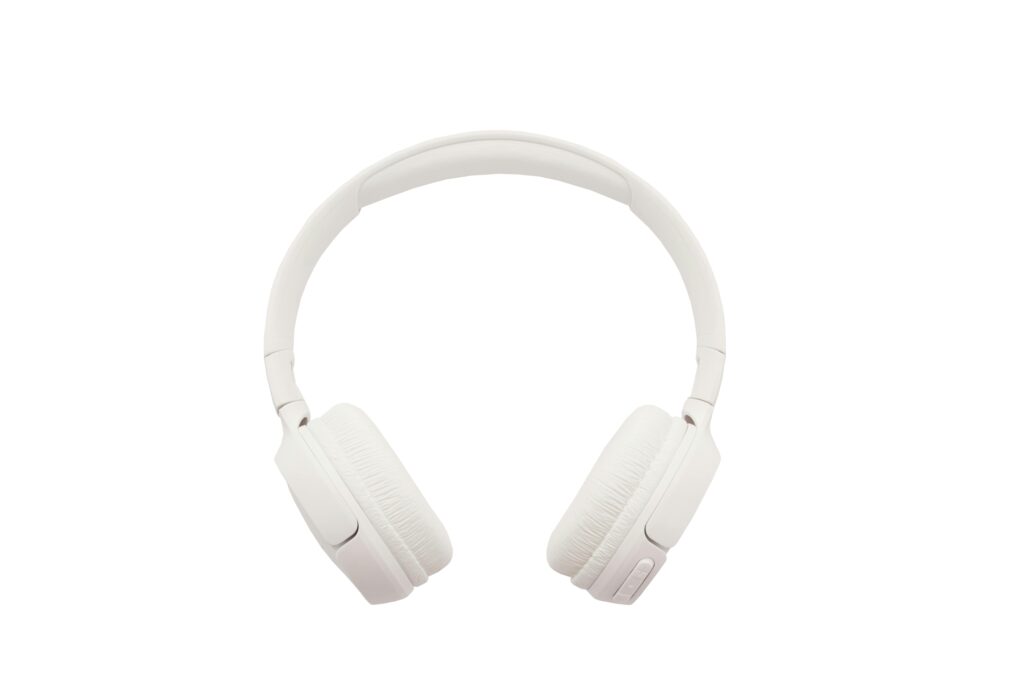With the ever-growing popularity of wireless technology, choosing between wired and wireless headphones has become a common dilemma for music lovers, gamers, and professionals alike. While convenience, sound quality, and price often dominate the decision-making process, an important factor often overlooked is health. Does one option have an edge over the other when it comes to safety and well-being? Let’s dive into this topic to explore which type of headphones might be better for your health.
Table of Contents
- Introduction
- EMF Radiation: A Key Concern with Wireless Headphones
- Wired Headphones: A Safer Option for Avoiding Radiation
- Volume Levels: Both Can Be Harmful If Misused
- Comfort and Fit: Which is Gentler on Your Ears?
- Battery Life and Headphone Usage: Can It Impact Health?
- What About Physical Activity?
- Conclusion: Which Is Healthier?
- Frequently Asked Questions (FAQ)

1. EMF Radiation: A Key Concern with Wireless Headphones
One of the primary health concerns surrounding wireless headphones is the exposure to electromagnetic field (EMF) radiation. Wireless headphones, like Bluetooth earbuds or over-the-ear models, emit low levels of radiofrequency (RF) radiation, a type of non-ionizing radiation. Non-ionizing radiation is generally considered safer than ionizing radiation (like X-rays), but it’s still something to think about.
Although current research has not definitively proven that low levels of RF radiation pose significant health risks, there are ongoing debates about long-term exposure. Some studies suggest a potential link between prolonged use of Bluetooth devices and an increased risk of cancer or neurological disorders. While the data is inconclusive, some users may prefer wired headphones to avoid even low-level radiation exposure.
2. Wired Headphones: A Safer Option for Avoiding Radiation
Wired headphones, by contrast, do not emit RF radiation, making them a safer option from a radiation exposure perspective. Since wired headphones rely on a physical connection to your device, they eliminate the need for wireless signals altogether. For users who are particularly concerned about EMF exposure, wired headphones may offer peace of mind.
That being said, the likelihood of wireless headphones causing significant harm due to radiation is low based on current evidence. However, if you’re someone who prefers to play it safe, wired headphones are the better choice when considering radiation exposure alone.
3. Volume Levels: Both Can Be Harmful If Misused
Whether you’re using wired or wireless headphones, volume is a major factor when it comes to protecting your ears. Listening to music, podcasts, or calls at high volumes for extended periods can lead to hearing damage, regardless of the type of headphones.
The World Health Organization (WHO) recommends that individuals limit their exposure to sounds above 85 decibels (dB) for prolonged periods. Unfortunately, both wired and wireless headphones can easily exceed this level, especially in noisy environments where users tend to crank up the volume.
To minimize the risk of hearing loss, consider using headphones with noise-cancelling features. This helps block out background noise, allowing you to listen at lower volumes without sacrificing sound quality. This option is available for both wired and wireless models, so it’s more about how you use your headphones than the type you choose.
4. Comfort and Fit: Which is Gentler on Your Ears?
Comfort plays a huge role in whether your headphones could affect your health. Ill-fitting earbuds or headphones, whether wired or wireless, can cause discomfort, soreness, and even ear infections if used improperly.
Wireless headphones often offer more flexibility and freedom of movement, reducing the chances of tugging or pressure on your ears caused by tangled cords. This can result in less physical strain on your ears and neck. However, some users find that wireless earbuds don’t fit as securely, leading to discomfort during long listening sessions.
Wired headphones, on the other hand, can feel restrictive due to the physical cord, which might tug or pull if it gets snagged. However, many users find the over-ear wired headphones more comfortable for extended wear because they typically offer larger ear cups and better padding, reducing ear fatigue.
5. Battery Life and Headphone Usage: Can It Impact Health?
Another factor to consider is battery life. Wireless headphones rely on battery power, and frequent charging may become a hassle. More importantly, the worry of running out of battery may lead some users to keep their wireless headphones in for prolonged periods, leading to ear fatigue and discomfort.
With wired headphones, there’s no battery to worry about, meaning you can use them for as long as you like without having to pause for a recharge. This uninterrupted listening experience can be more convenient, but it’s important to still give your ears breaks to avoid discomfort and potential hearing damage.
6. What About Physical Activity?
For those who use headphones during exercise or outdoor activities, wireless headphones often come out on top due to their convenience. The lack of a cord gives you greater freedom of movement, reducing the chances of the headphones getting tangled or pulled out accidentally. This can make wireless headphones safer for activities like jogging, cycling, or working out.
However, if you’re doing light activities or working from home, wired headphones might offer a more consistent sound quality and still be comfortable for occasional use. For heavier physical activity, wireless headphones are usually the safer and more comfortable option to avoid potential accidents caused by tangled cords.
Conclusion: Which Is Healthier?
When it comes to the health debate between wired and wireless headphones, both have pros and cons, but it largely depends on your personal concerns and usage patterns.
- If you’re worried about RF radiation, wired headphones are the safer choice.
- For convenience during physical activities, wireless headphones offer freedom and flexibility.
- To protect your hearing, it’s essential to monitor your volume levels, whether you’re using wired or wireless headphones.
- For comfort and long listening sessions, it’s crucial to find headphones that fit well, regardless of whether they’re wired or wireless.
In the end, the best way to protect your health is to use headphones responsibly. Keep the volume at safe levels, take regular breaks, and choose headphones that suit your lifestyle and comfort preferences. Whether you opt for wired or wireless, smart usage is key to keeping your ears—and your overall well-being—safe.

When it comes to choosing between wired and wireless headphones, both have their pros and cons for your health. If you’re concerned about EMF radiation, wired headphones are a safer bet. On the other hand, wireless headphones provide convenience and freedom, especially during physical activities. Regardless of the type, keeping your volume levels low and taking regular breaks is key to protecting your ears.
If you’re leaning toward wireless headphones, consider the boAt Rockerz 450 Bluetooth On-Ear Headphones. With up to 15 hours of playback, 40mm drivers for powerful sound, and padded ear cushions for comfort, it’s an excellent option for long listening sessions. It also features integrated controls for easy music and call management, and dual modes, allowing you to switch between wired and wireless use. Plus, the stylish Luscious Black finish adds a sleek look. For those seeking an affordable yet high-performing wireless option, the boAt Rockerz 450 is a great pick!
Frequently Asked Questions (FAQ)
1. Do wireless headphones cause cancer due to radiation?
No conclusive evidence suggests that wireless headphones cause cancer. However, wireless headphones emit low levels of RF radiation, which some studies suggest could be harmful with long-term exposure. If you’re concerned, you might prefer wired headphones.
2. Can wired headphones damage my ears?
Yes, if you listen at high volumes for long periods. Regardless of whether your headphones are wired or wireless, it’s important to keep the volume below 85 dB and take regular breaks to avoid hearing damage.
3. Which type of headphones is better for working out?
Wireless headphones are generally more suitable for workouts as they allow more freedom of movement and avoid tangling with cords. Many wireless models are designed specifically for fitness, offering sweat resistance and a secure fit.
4. Are wired headphones more comfortable than wireless?
It depends on personal preference and usage. Over-ear wired headphones are often seen as more comfortable for long-term use, while wireless earbuds can be more convenient for short, on-the-go sessions. Comfort also depends on fit and design.
5. How can I reduce the health risks of using headphones?
To protect your hearing, keep the volume at a safe level, use noise-cancelling headphones to avoid cranking up the volume, take breaks from listening, and ensure a good fit for comfort. For those concerned about radiation, opting for wired headphones may help.
6. Do wireless headphones have a shorter lifespan due to battery issues?
Yes, wireless headphones rely on batteries, and over time, the battery will degrade, leading to shorter listening times between charges. Wired headphones don’t have this limitation and can last longer if properly maintained.
7. Can using headphones too long cause ear infections?
Yes, wearing headphones for extended periods, especially if they don’t fit properly or if hygiene isn’t maintained, can lead to ear infections. It’s important to clean your headphones regularly and give your ears a break.

